Forest Feast
A season of savoring wild food,
fire, and connection
5 sundays, Sept. 28 - Nov. 23rd
In Kahnawake
We all come from people who once knew how to read the land, gather food, and feed their communities well. A hunter gatherer has to know hundreds of plants and animals and know their landscape intimately.
For some of us, that knowledge still lives close by, held in families, cultures, and communities. For others, it might feel more distant, buried under generations of disconnection. Either way, it’s part of our human inheritance. And it’s something we can begin to remember, together.
That’s what Forest Feast is about.
This isn’t a survival course, and it’s not just a fancy foodie experience either. It’s a small, hands-on group that meets every other Sunday to slow down, learn from the land, cook real food over fire, and reweave some of those ancestral threads together.If you’ve been craving more connection to wild food, to fire, to your own place in the natural world, then this might feel like a homecoming.
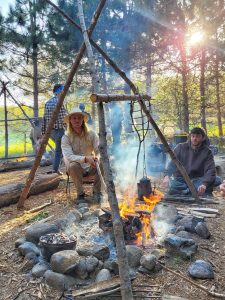
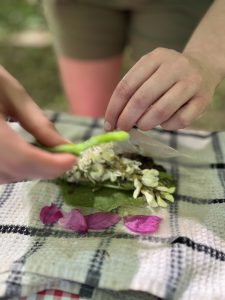
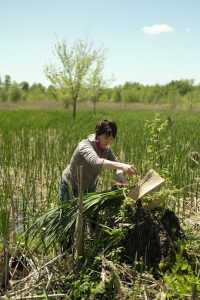
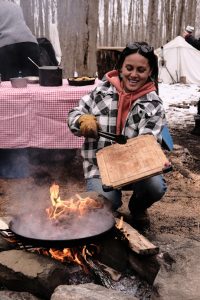
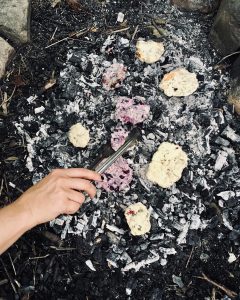
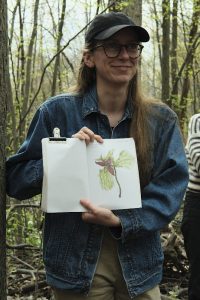
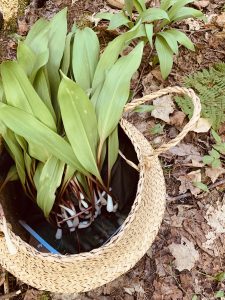
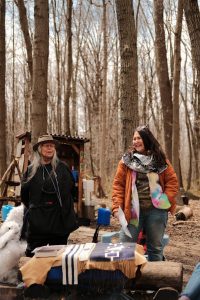
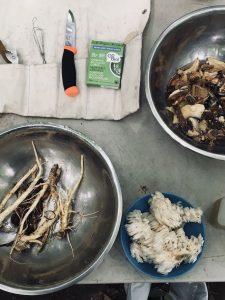
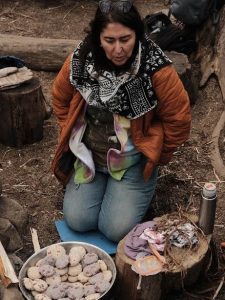
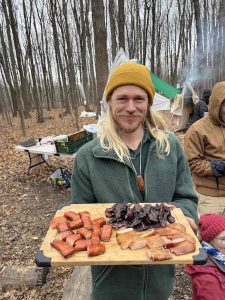
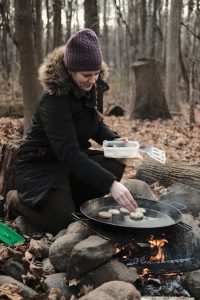
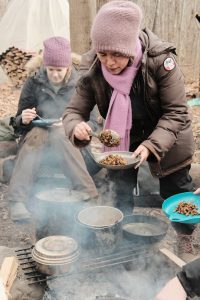
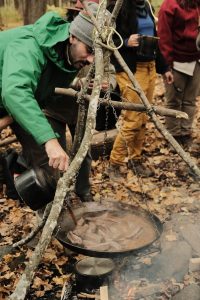
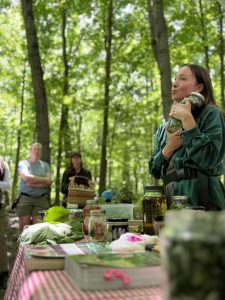
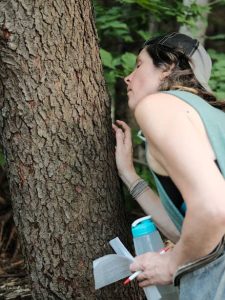
What It Looks Like
We meet every other Sunday, in a beautiful backyard forest in Kahnawake. Each class explores a different facet of wild food, including:
- Learning to identify, harvest, and prepare seasonal wild plants
- Practicing outdoor cooking methods (with fire, not camp stoves)
- Using tools like knives, axes, and saws
- Sharing food, stories, and cultural teachings, sometimes with Indigenous guest instructors
You’ll leave each class with a full belly, a few calluses, new knowledge, and maybe even a deeper sense of belonging.
What You’ll Learn
- How to confidently identify wild edible plants (and avoid toxic plants)
- How to harvest and gather in ways that are ethical and sustainable
- How to cook delicious food over an open fire
- How wild food can be more than a meal: it can be medicine, culture, relationship
The Workshops
Register for the full course, or sign up for just one class
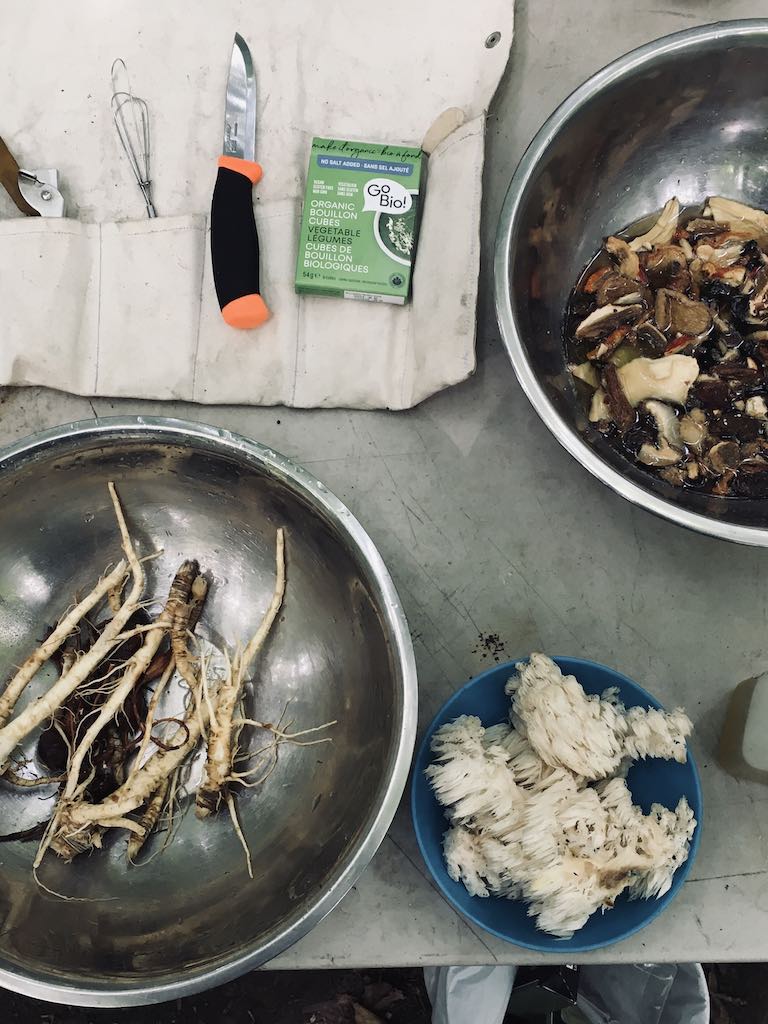
Fall Plants + Mushrooms
Sunday, September 28th
Can I eat that root? Will that mushroom kill me? In this class, you’ll both expand your plant knowledge and learn how to start mushroom foraging without poisoning yourself. We’ll also prepare some delicious dishes and taste a variety of mushroom species.
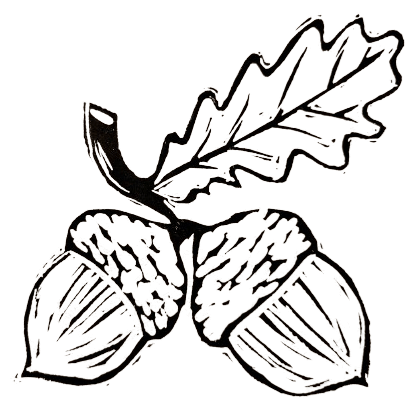
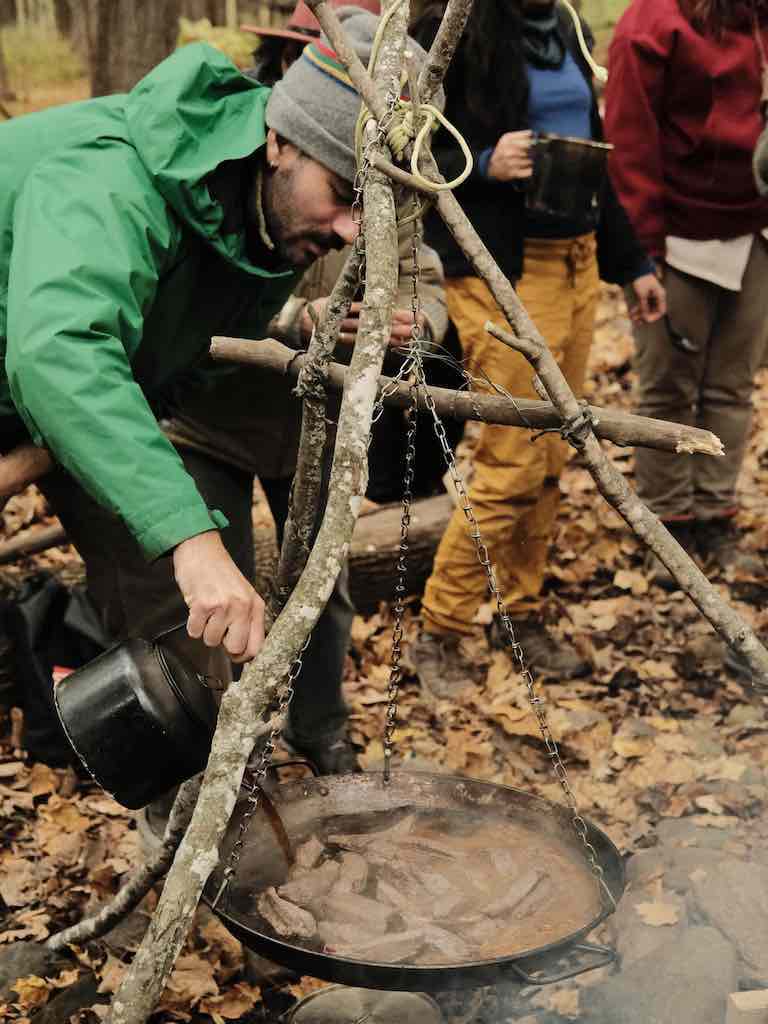
The Wilderness Cook
Sunday, October 12th
Learn the art and science of cooking outdoors with fire. If you’ve ever cooked over a sad, smoky fire, those days are over. Come away with the skills to make your camp cooking delicious, light fires confidently, and use an axe safely.
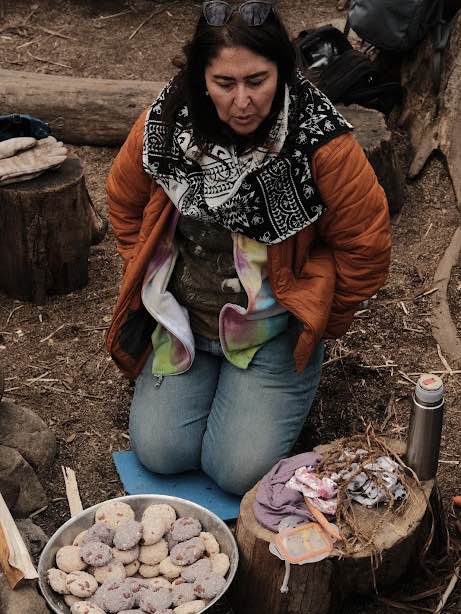
Indigenous Foodways
With guest instructor Kawisente Carole McGregor
Sunday, October 26th
Experience the food culture of the Kanienkeha’ka. Hear stories, taste traditional foods like the three sisters, and learn about contemporary indigenous foodways.

Food From the Trees
Sunday, November 9th
Acorns, butternuts, and hickory nuts—tree foods can truly sustain you, if you know how to receive their gifts. Learn to identify these keystone trees, and how to gather, process, and eat them.
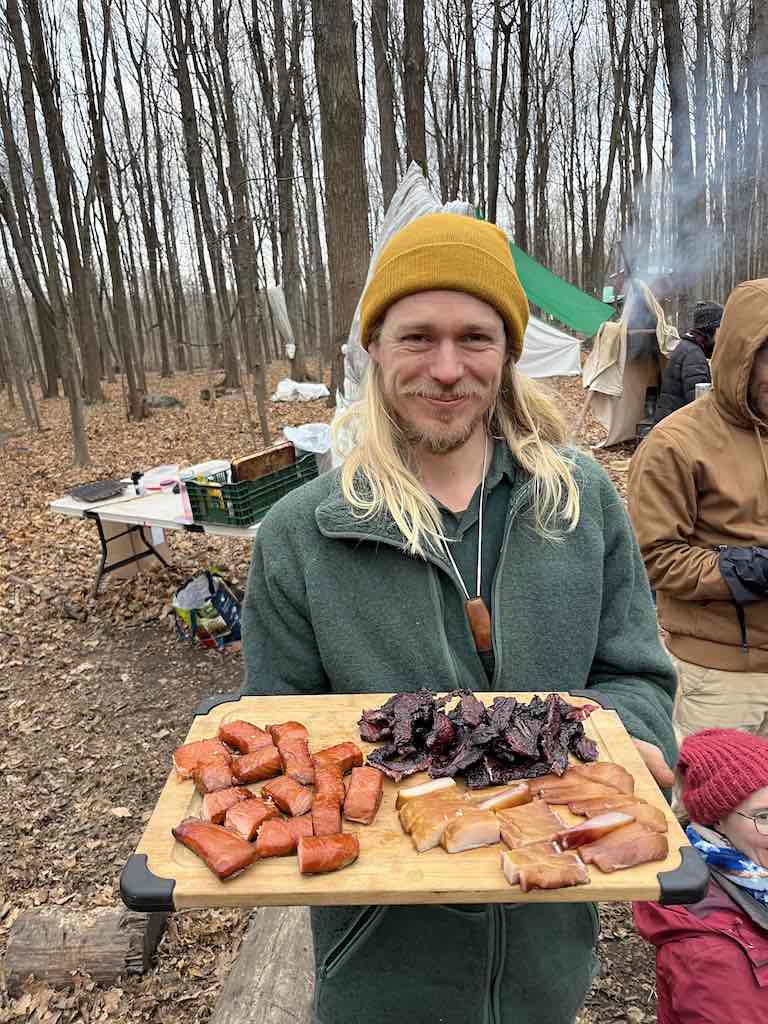
Smoking Fish + Wild Teas & Spices
Sunday November 23rd
Step back to a time when preserving food was an essential skill. We’ll build smokers out of wood and canvas, and we’ll smoke salmon.
The Details
How Much
- $600 for the fall season (5x full-day sessions). Possible to pay in two installments.
- $130 per class for drop-ins (if space allows).
Solidarity pricing
Are you a student, artist, single parent, or just need a break right now?
We offer discounted spots for folks who couldn’t otherwise attend. No long forms or explanations. Just send us an email, and we’ll set you up.
When and Where
- When: Sundays 10am–4pm (every two weeks)
- Where: Kahnawake — 30 minutes from Montreal (we help coordinate carpooling). See below for full site info
Food
What’s included
A well-honed curriculum based on years of experience
- A peaceful and wild learning space, not open to the public
- All the tools, cookware, and ingredients you’ll need
- Guest instructors who bring cultural depth and stories
- A warm fire, shared meals, and good company
Interested?
There’s no fake urgency here, but spots are limited, and this usually fills up.
If it speaks to you, we’d love to have you.
Click here to register or reach out to figure out if it’s the right fit.
The site in Kahnawake
We are grateful to be able to host many of our programs on Kanien’kehá ka (Mohawk) territory, in our friend Kawisente Carole McGregor’s forested backyard. We share the site with Kawisente’s family, our colleagues at Coyote Programs, and many plant and animal neighbours.

Getting there
Driving: From Montreal, it’s a 20-45 minute drive to Kahnawake depending on your starting point and traffic. Morning traffic on the weekends is typically fine.
Carpooling: We set up an online carpooling sheet to help participants organize rides, and this works out quite well.
Other Options: In rare instances where carpooling doesn’t work out, we suggest renting a Communauto.
*Detailed directions will be provided upon registration

Amenities
The site is situated in a beautiful mature Eastern Hardwood forest that provides an ideal outdoor classroom.
Amenities are basic, but that’s where our bushcraft skills come in. We have a fire circle and log benches, large rain tarps if it rains, water jugs for drinking and handwashing, and an outhouse for bathroom duties. It’s like being in a wilderness base camp, right beside the city.
Please let us know if you have any specific accessibility needs.

Cultural Respect
Kahnawake is the territory of the Kanien’kehá:ka nation. Our host, Kawisente Carole McGregor, has generously invited us to offer classes at her home with the goal of cross-cultural learning and exchange.
As guests, it’s important to come with a respectful attitude and behaviour, both at classes and when visiting Kahnawake.
Wise Oak is not an Indigenous-run company. We do, however, have Indigenous instructors in class on a regular basis, and centering Indigenous knowledge systems is an important part of our work.
If you are Kahnawakehro:non, or Indigenous from another place and have questions or want to get involved, please reach out.
F.A.Q.
Our workshops are primarily taught in English, but we are happy to translate into French to help clarify concepts, terms and species names.
Our courses are meant to build on each other over a season, and the community and friendships that develop often turn out to be people’s favourite parts. End-of-season events and campouts are usually closed to drop-ins. We prefer small groups that go deep, and we feel that you’ll get more value this way.
That said, we get that you might want to try a single workshop before committing to a full course, or maybe there’s just one topic that interests you, so we do offer up a limited number of spots in each workshop à la carte. Join our mailing list to find out when these become available.
If one of our courses appeals to you but you know in advance you can’t make it to every session, get in touch and we can offer you a pro-rated price.
We can accommodate a limited number of children in class to make it possible for parents to attend. Please make a request by email well in advance of the class. You must be 100% responsible for your child, and know that it may make it harder for you to participate.
There is a cost of $30 per workshop for kids 5 years old and up.
Our courses are accessible regardless of experience, age, and physical ability. That doesn’t mean they’re easy. Land-based learning is active and physical, and some of the skills we teach are hard work to master. Being outside can also be tiring. Expect some moderate physical and mental effort for most of the day, with 45 minutes of down time at lunch and some breaks throughout. We respect the group’s energy levels, and you’re always welcome to adapt or opt out of an activity if it’s not working for you.
Participants are also expected to help care for the site by splitting wood, carrying water, cleaning up after themselves, etc.
To see all of our policies including those for cancellations, liability waivers, privacy, and photo consent, Click here
Join the Wise Oak Newsletter
Get updates on our upcoming courses and reflections on the nature connected life.
Unsubscribe at any time.